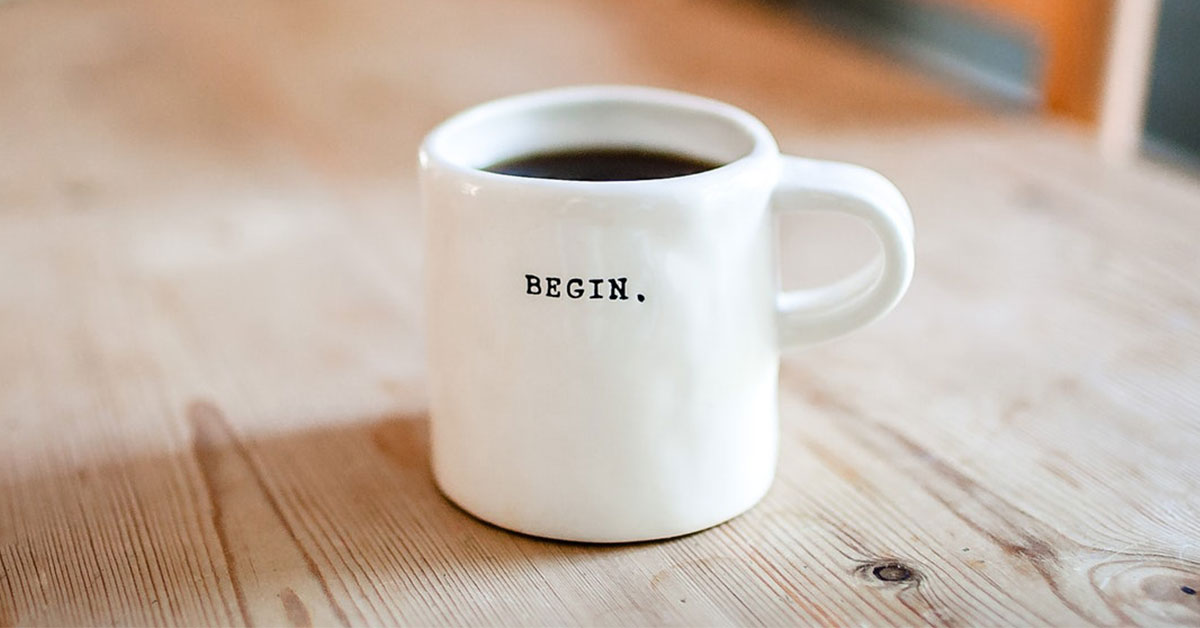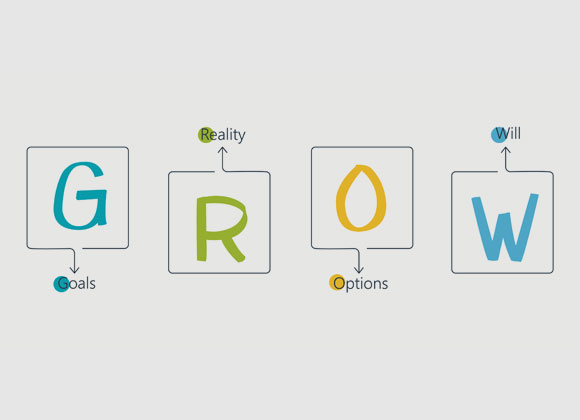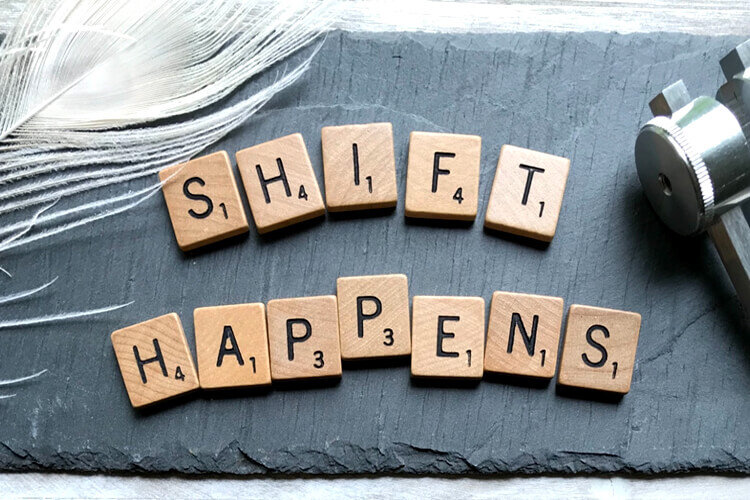Compassionate Coaching
Our Coaching Approach to Wellness

Our view of organizational and human capital development, sustaining that growth, and then unleashing value-adding engagement is an action-learning coaching model developed by Dr Mark with two key activities / goals; knowledge stacking and creating wisdom. Knowledge being that lifelong learning process of gaining a deeper understanding of the topic at hand, and wisdom being the process of connecting and utilizing those knowledge connections to wisely thrive and flourish. We conduct coaching by way of individual work, team presentations, small group work, break-out sessions, lunch and learns, walk and talks, and online sessions to stimulate curiosity and learning. At Centre for Stress Management we further employ a neuroscience perspective with "knowing" - i) knowledge stack prior and new competencies and ii) recall more clearly and quicker to employ relevant historical knowledge. There is clearly value here from a short-term (and long-term) perspective of acquiring new knowledge and recalling old knowledge, but it then begs a more critical growth-minded question in today's short-sighted/daily business cycle: So now what? The answer lies in merging coaching and neuroscience knowing processes to create for our clients "wisdom." In short, with knowledge as a resource, we then integrate the knowledge connections to strengthen a person's new and historical core competencies (experiences) to assess, reflect, construct, and engage in their personal and professional world that merges wisdom in action.
Knowledge is the learning of something in a new day and/or recalling something accurately from yesterday. Wisdom is the understanding of how that knowledge can best serve the wellness of a person (the quality of life) and the well-being of an organization (sustaining growth-minded behaviors).
We do not see coaching as a "contract for services," but instead, an investment by the person or an organization to strengthen adaptability for a continuous process of action learning, greater comfort with change, and a stronger set of EQ skills. From a business perspective, the coaching will approach the processes of knowledge and wisdom to help organizations "grow bigger, become better, add more value and/or develop something new." In other words, "We Will." From a human capital perspective (the individual), the coaching will integrate the processes of knowledge stacking and wisdom engagements for individuals to "enhance resilience and perseverance (the "grit"), strengthen core competencies (better to great), grow their character strengths (value-based aspirations), and create well-being habits (optimal performance)." In other words, "I Can." With a mindset of "I Can" (the individual's brain) and an organization culture of "We Will" (the company brain if you will), the way forward becomes (more) understandable, believable and actionable. But the universal hurdle (the common denominator) we have seen in our 40 years of being part and/or witnessing individual and organizational change after counselling, training, coaching or professional development processes resides in a key instinctual part of our brains: learning. There are numerous models and theories about learning, our approach ensures that the three fundamental elements of higher learning are present in all our services, especially in coaching: Cognitive Learning (e.g. focus, attention and memory), Emotional Learning (e.g. EQ, motivations and mood regulations), and Behavioral Learning (e.g. consistency, collaboration and patterns). In short, we make sure we understand the why (cognitive), the how (behavioral), and the what (emotional) of each and every client to optimize the coaching experience. Hence, we teach our clients not only what is learning, but more importantly, we teach them how they can learn best.
If you desire to have a consultation on how we can strengthen your individual and corporate knowledge and wisdom, please feel free to reach out and connect with us to better understand how we can unleash a flourish "vibe" in your work and personal life. We trust you will find the corresponding pages informative, realistic, action-oriented and evidence-based approaches on how coaching develops well-being habits and patterns for your wealth, health and happiness. Please feel free to contact us on info@stresshk.com
Our Coaching Model - MINDING
Coaching (as well as counselling, consulting and training) and the neurosciences are at a new intersection of developing i) dynamic ways of how to acquire new knowledge and create wisdom, ii) expanding our perspectives on vulnerabilities, preferences, habits, and choices, iii) heightened insights on the interactions of emotions and cognitions that develop, sustain and grow high(er) performance behaviors, iv) broader knowledge and applications on how aspirations (the types of goals) and motivations (the type of desires to pursue the goals) support human and organizational growth, and v) deeper understanding the value of failure, pain and disappointment actually facilitates, not hinders, flourishing for all types of organizations and individuals. Concurrently, with our fusion of neurosciences and coaching, the Centre for Stress Management applies the neuroscience of learning (what types of learning is our client capable of as well as what type of learning they have typically used) and memory (temporal, working, long-term) to ensure that our coaching services allows the client to experience: i) meaning (acquiring a deeper knowledge on the subject matter at hand), ii) purpose (how to apply that deeper knowledge at work or home), and iii) permanent memory (how the coaching experience from meaning and purpose transfers into permanent memory to become a sustainable character strength and core competency).
Dr Mark's over 40 years of training, research, lecturing, consulting, teaching and coaching ensures each and every client understands their blockages to a successful coaching experience that often times hinders the true potential of a person at work and in their personal life. One challenge we discover with our clients in coaching is the pattern or habit of "mind wandering (the person)" and or "mission drifting (the organization or the home)." These types of brain-mind activities (wandering and drifting) usually arises because of performance or boredom stress that lingers inside a person's when attending a coaching session (or at work or home) either consciously and or sub-consciously. The wandering brain and mission drifting behaviors can reduce the effectiveness of learning and performance, hence, each client is also taught various mindfulness and perception exercises (focusing and attentiveness) to enhance the coaching experience so they may apply those new and or stronger competencies in their world at large. Secondly, many corporate and private clients who successfully complete a coaching experience often times do not adjust their self-identity and sense of worth that are often non-aligned with their new and or stronger competencies and wisdom. In other words, our coaching programs ensure our each and every one of our clients understands and apply their new well-being habits, positive and optimistic thoughts, growth mindset perspectives, and focused engagements that reaffirms a person's authentic self. In short, the absence of the impostor syndrome and low self-esteem.

Success is Doing, Successful is Completing, Achievement is Getting
Success, Successful and Achievement are often times seen as one and the same by many in all areas of life. But they are not. We believe that first of all Success is about doing something, in other words, having consistency with a task at hand or a goal one is pursuing. Focusing on success as an active state calls in both resilience and persevering micro-skills that reduces the risk of exhaustion and fatigue, and instead, activates the mindset of I Can and I Will in the success journey. Keep doing! Successful on the other hand is where the individual completes the task or activity at hand, the key word here being completing something. Successful is not about getting the Gold medal or the job promotion, successful is the self-realization that one has completed all the necessary processes to possibly get the Gold or the promotion. Concurrently, successfully completing the tasks at hand that are related to a goal or a desired outcome enhances our focus skills that reduces the risk of procrastination and frustration. Achievement is about getting something, and in an almost perfect world we most certainly would want to get the Gold medal or the promotion. But achievement is more important than the gold medal, the distinction, the promotion or pay raise. Achievement is (more) about getting insight, learning or gaining new knowledge or wisdom, about yourself and the processes performed. This in turn, sustains and grows our habits of well-being that improves our overall quality of life (wellness).
Resilience is the Now, it's I Can, it's I Have Faith; Perseverance is the Future, it's I Will, it's I Have Hope
Resilience, according to neuroscience research and our 40 years of practice, shows great activity in the left prefrontal cortex of the brain, and is responsible for enhancing a person's ability to adapt in a healthy way with life's events in that moment that cause stress and adversity. Research in resilience has increased over the years in healthcare especially with the onset of chronic lifestyle diseases and those who recover from trauma, prolong stress and chronic diseases and illnesses. Resilience research in the business world focuses on how a person deals with time, energy and mind management challenges with their work at hand in the now. Dr Mark teaches his clients the four basic types of resilience: physical, emotional, mental and social, to enhance their resilience competencies in both the work and personal worlds they live in. Perseverance on the other hand according to many in neuroscience is about the brain chemicals dopamine and serotonin, dopamine being the fuel for persevering behaviors and the formation of good habits, whereas serotonin when experienced with the tasks at hand actually enhances perseverance for work/life activities that are long-term in nature. Concurrently, our coaching teaches a person how they can remain calm and patient when enduring a long-term tasks (persevering) and not grow bored or exhausted. In short, our coaching teaches each client how to nurture their long-term perseverance to ensure task completion at its highest level of quality.

Relationship Coaching
Our Relationship Coaching focuses on both the personal world (partnership, marriage, relatives, friendships) and the work world (colleagues, clients, leadership, employees, competitors) relationships where we educate our clients in 5 key areas: i) understanding the basic elements of the intimacies and stressors in relationships, ii) clarifying the values, needs and aspirations of the "I" to enhance authenticity when connecting with others, iii) emotional mastery and self-regulations conflict management skills, iv) non-hostile communication skills, and v) being adaptive and accommodating for a healthy "we" world.

Performance Coaching
There are many theories and topics on performance coaching. Our approach focuses on ensuring each client understands that before a person can "change" their current performance, we must first first focus on building competencies and micro-skills around adaptability, transitioning and choices. We believe that the worlds we live will have new and recurring challenges that will cause our current performance at work or home to be adaptive before smarter, comfortable first with transitioning (saying good bye to the old) before changing (embracing the new), and exploring choices that meet and exceed our needs.

Life Coaching
Life Coaching examines the four key pillars of wellness that directly impacts our personal and professional lives each and every day: i) Relax-Rest-Sleep; ii) Movement - Nutrition; iii) Work - Life Integration; and iv) Feeling - Thinking. Dr Mark's membership with the American College of Lifestyle Medicine and the Royal College of Public Health (UK) and his training at Harvard, Berkeley, Stanford, Yale and other well-respected university training centers has ensured our Life Coaching service is evidence-based and contains the most current practices to establish well-being habits that improves our daily quality of life - what we call wellness.

Career Coaching
The achievement world in neuroscience looks at three areas we can pursue a craft - our work if you will. The first is the Job, a craft we perform daily whereby we seek more of a sense of surviving and sustaining work for an extended period of time. The Career has elements of the Job, but those who seek coaching in the career space explore how they can grow and thrive with current and future competencies. The Calling is where we coach those who desire a craft, their work, that provides meaning (deeper knowledge) and purpose (applying that deeper knowledge) that sustains passion first, then a livelihood.